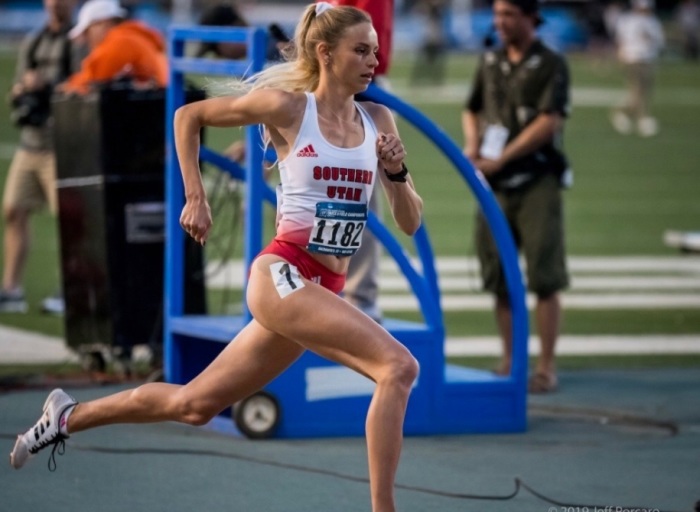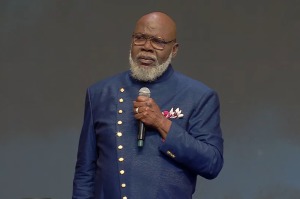Female athletes who lost to trans-identified males fight for 'fair playing field'

Linnea Saltz wants to be a lobbyist. Haley Tanne intends to pursue a career as a physician’s assistant. Chelsea Mitchell plans to obtain a degree in marketing. While all three women have different career aspirations, they all have one common experience: losing to biological males who identify as females in female track competitions.
Athletics have played an essential role in all three women’s lives, and they take a great deal of pride in their accomplishments throughout high school and college.
However, they have been negatively impacted by policies allowing biological males who identify as females to compete on women’s sports teams, leading them and other female athletes to embrace varying degrees of activism on the issue.
Their activism comes as an effort is underway that could lead to more young female athletes experiencing the same setbacks as Saltz, Tanne and Mitchell as they seek to advance their athletic and career goals in both high school and college.
Policies in various states and athletic associations — such as the NCAA — permit trans-identified males to compete in women’s athletic events.
Additionally, a wide-reaching legislative initiative billed by Democrats in U.S. Congress as necessary to enshrine federal protections for trans-identified individuals into federal law that has passed in the House of Representatives has a provision banning sexual orientation and gender identity discrimination.
Female athletes of all ages worry that by requiring schools to allow athletes to play on sports teams that correspond with their gender identity instead of their biological sex, females will be placed at a competitive disadvantage.
As President Joe Biden and congressional Democrats push for the passage of the Equality Act, female athletes of all political persuasions are speaking out in defense of girls’ and women's sports.
Fighting for an "equal playing field"

One of those voices is Saltz, a graduate student at Georgetown University in Washington, D.C., who previously ran track at Southern Utah University.
Saltz told The Christian Post that she began running in high school.
“I wasn’t one of those typical athletes that had just been running their entire life. I always did different sports such as … dance and cheer and gymnastics,” she explained. “And in sophomore year of high school, I decided to go out and try running track. My brother at the time was participating in baseball and cross country, and I thought running would be fun and running would be something that we could potentially bond over.”
After joining the track team and making varsity in her first year, Saltz “fell in love” with the sport and wanted to continue running throughout college.
The athlete spent most of her college athletic career competing solely against biological females, but that changed in the summer of 2019 when her coaches at Southern Utah University told her that an athlete at a competing university who previously competed as a male would be competing as a female.
“I immediately read through the NCAA Gender Inclusion Handbook,” she recalled. After reviewing the handbook, Saltz discovered that “there wasn’t a lot of regulation, there wasn’t a lot of jurisdiction, there was … a lot of leeway.”
“There was a lot of ambiguity in the sense that it didn’t seem as if there was a real strict protocol in terms of how these kinds of athletes would be able to compete within the NCAA,” Saltz recalls.
Saltz reached out to the NCAA, telling them that the organization needed to update its protocols. In response to her concerns, the NCAA sent Saltz an e-mail informing her that “the rules are as they are and that isn’t going to change.”
Saltz told CP that a trans-identified student from the University of Montana competed against her and other runners from Southern Utah in a distance running relay.
“I competed against a biological male, and our relay team lost,” she recounted. “During the competition, it was seen that the coach was telling the athlete to slow down during the race as they were winning by a pretty large margin.”
The NCAA’s policy regarding transgender athletes, as described by Saltz, allows males or females in transition to take a year off to undergo hormone suppression therapy. Upon completion of the therapy, she alleged, “they can then come back and compete in the opposite gender category with no … continuous testing, with no marks of certain estrogen or testosterone levels or anything of that nature.”
In its handbook, the NCAA argued that “any strength and endurance advantages a transgender woman arguably may have as a result of her prior testosterone levels dissipate after about one year of estrogen or testosterone-suppression therapy.”
The handbook further argued that medical experts have said that the “assumption that a transgender woman competing on a women’s team would have a competitive advantage outside the range of performance and competitive advantage or disadvantage that already exists among female athletes is not supported by evidence.”
However, a study conducted by the British Journal of Sports Medicine found that even after a year of hormone treatments, trans-identified males still maintain an advantage over biological females in sports. The study also revealed that trans-identified males remained 12% faster than the average biological females of similar ages two years after taking hormones.
Saltz says she is speaking out about the issue because she has a desire to prevent other women from having “to feel as if they’ve already been beat before they’ve started a race or they’ve been beaten before entering the arena or playing basketball or whatever sport it may be.”
“It doesn’t even have to do just with your sport. It has everything to do with just women fighting … for an equal opportunity and an equal playing field in the NCAA and in the sports world,” Saltz assured.
While Saltz has received “nothing but positive feedback” from her coaches about expressing her opinion and concerns, she acknowledged that she does get “lots of backlash.”
“I do get lots of people reaching out to me saying horrible things about me. But at the end of the day, that doesn’t change the way I felt in my particular situation, and it’s not going to silence my voice,” she assured.
Even before the Equality Act first came up for a vote in the House in May 2019, policies allowing biological males to compete in women’s sports have prevented biological females from taking the top spots in some athletic competitions.
In early 2020, Selina Soule, Chelsea Mitchell, Alanna Smith and Ashley Nicoletti sued the Connecticut Interscholastic Athletic Conference, the Connecticut Association of Schools and their individual school districts over policies allowing trans-identified males to compete in women’s sports at the K-12 level.
A fact sheet compiled by the conservative legal nonprofit Alliance Defending Freedom, which has represented the girls in their litigation and won several Supreme Court cases, highlights how such policies harmed their clients.
Soule “missed qualifying for the state championship 55m final and an opportunity to qualify for the New England championship by one spot in 2018-19 season” because “two spots were taken by males.”
Mitchell “lost four (4) girls’ state championships, two (2) all-New England awards, and many other awards to male competitors.”
Smith “ran a 2nd place finish in the 200m at the New England Regional Championships, but was dropped to 3rd behind a male competitor.” Nicoletti “missed an opportunity to compete at the 2019 outdoor State Open Championship due to two male competitors.”
“There have been countless other female athletes in the state of Connecticut, as well as my entire indoor track team,” Soule said in a 2019 interview. “We missed out on winning the state open championship because of the team that the transgender athlete was on.”
However, advocates with the American Civil Liberties Union claim that the girls are “attacking two black young [men] who are simply participating in the sport they love just because they are transgender.” Last month, a federal judge appointed by President Bill Clinton dismissed the girls’ lawsuit.
The U.S. Department of Education and Department of Justice, under the Trump administration, had investigated the girls’ complaint. The government sided with the female athletes in their lawsuit, arguing that allowing trans-identified male athletes to compete in female competitions violated Title IX rights.
But the Connecticut females have received less support under the Biden administration, which has reversed many of the Trump-era positions on the transgender issue.
The Big Picture: The Equality Act "erases what a woman is"
In 1972, Congress passed Title IX federal civil rights law to guarantee equal opportunities for women and girls in education, including sports.
As the advocacy organization Independent Women’s Voice points out, “Title IX’s regulations allow schools to operate ‘separate teams for members of each sex.’”
The group contends that “given the competitive advantage that male athletes generally have over female athletes, these regulations play an important role in expanding athletic opportunities for women and girls,” crediting Title IX for the “explosion of women’s high school and college sports.”
The Equality Act’s opponents — from feminists to Christian conservatives — warn that the legislation championed by Democrats threatens to roll back this progress.
Congressional Democrats’ efforts to pass the Equality Act date back to the 116th U.S. Congress, which met from 2019 through 2020.
The measure easily passed the Democratic-controlled House of Representatives. It failed to become law as a result of opposition from the Republican-controlled Senate as well as the Trump administration.
When Democrats took complete control of the federal government following the 2020 elections, they made the passage of the Equality Act a top priority. Biden promised to sign the legislation into law in his first 100 days in office on the campaign trail.
The Democratic-controlled House passed the Equality Act in February, but it has stalled in the Senate amid opposition from both Democrats and Republicans.
Biden has attempted to essentially enact some of the Equality Act’s provisions via executive order.
On his first day in office, the president signed an executive order banning discrimination based on sexual orientation and gender identity. The executive order maintains that “Children should be able to learn without worrying about whether they will be denied access to the restroom, the locker room, or school sports.”
Last year, the U.S. Supreme Court ruled in an employment discrimination case that the protections of Title VII of the Civil Rights Act, which outlaws discrimination based on sex, also apply to sexual orientation and gender identity. The Biden administration has used that ruling in Bostock v. Clayton County to justify policies preventing discrimination based on sexual orientation or gender identity.
Several states have passed legislation banning trans-identified males from competing in women’s sports in recent years and months. Such efforts have been met with opposition from the NCAA, a leading body that oversees athletics at colleges and universities nationwide.
Beth Stelzer, an amateur powerlifter who founded the activist collective Save Women’s Sports, has emerged as one of the most outspoken supporters of these legislative efforts.

According to Save Women’s Sports, six states have passed laws restricting participation in women’s sports to biological females in 2021. Those states are Alabama, Arkansas, Mississippi, Montana, Tennessee and West Virginia.
Idaho passed a measure to that effect in 2020, which was met with resistance from the courts. Stelzer has traveled the country to testify in favor of such legislation as state legislatures debate the bills. More than two dozen similar bills have been introduced at the state level in 2021.
“It has been going great,” Stelzer told CP. “Of course, there are times that I have the opposition harassing me. But the Capitols always have security that makes me feel safe.”
“We’re going to keep the pressure on and we won’t back down,” she vowed. “We might even have more states enter in bills before their session ends.”
The ACLU claims that bills that seek to limit female sports to only biological females are discriminatory because they would deny trans students the right to play sports consistent with their gender identity. Some Democrats believe that federal discrimination laws that protect based on sex should be interpreted to include sexual orientation and gender identity even though those terms are not included in the text of those laws.
Stelzer shared her concern that by equating “gender identity” with sex, the Equality Act “erases what a woman is.”
Such an action, she believes, “erases the definition of womanhood and allows anyone to claim our spaces — that’s on the sports teams, that’s in restrooms, that’s in crisis shelters, hospital wards."
"Our sex-separated spaces will be gone," she fears.
The Save Women’s Sports website features the stories of female athletes who support the organization’s mission.
“I’m getting numerous messages daily now of support coming into just my e-mail and I’m seeing more and more and more support on social media,” Stelzer explained.
She alleged that if the Equality Act becomes law, “women’s sports will fade away” because “it will not take long until all of the records will be held by males.”
Stelzer asserted that participating in sports gives women “the building blocks to lead our futures,” citing the “90-some percent of female CEOs” who once played sports.
A similar participation rate also applies to “government officials that are females,” she maintained.
“Women have become the majority of the population. We are becoming economic powerhouses, and there is an ideology out there trying to erase us. And that’s what Biden is going to do if he signs the Equality Act,” she argued.
Describing Save Women’s Sports as a “nonpartisan, grassroots coalition,” Stelzer told CP that “we have people from all sides of the political spectrum, including transgender athletes, that support us in this.”
“And, it’s really sad that all the opposition has is name-calling and attack and blaming to create a toxic environment [so] that people won’t speak out,” she added.
She urged female athletes with concerns to not “let the bullies bully you … into silence because that’s what basically women like me have become, the silent majority.”
Ryan Foley is a reporter for The Christian Post. He can be reached at: ryan.foley@christianpost.com





























